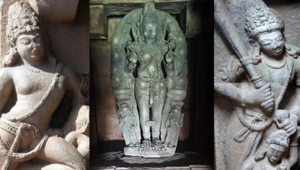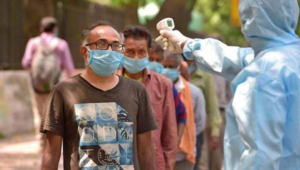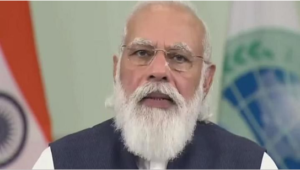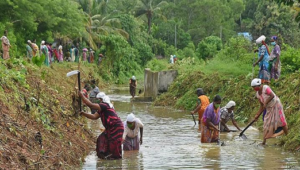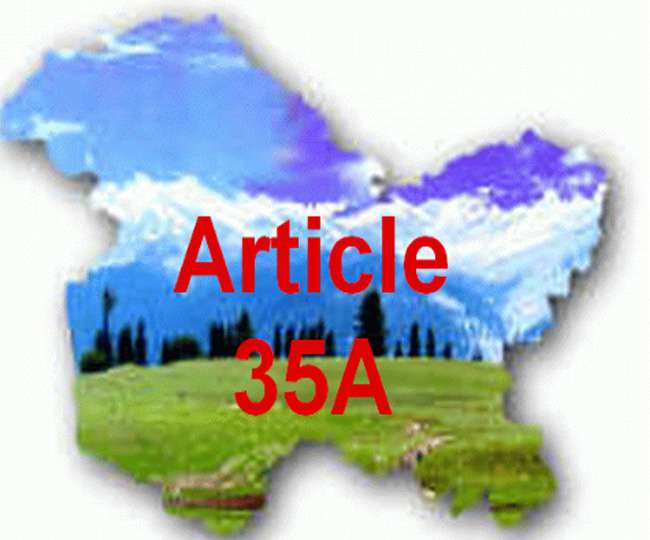
ARTICLE 35 A
In News
- The issue came up when a Kashmiri woman, Charu Wali Khan filed a petition to change the constitutional provision as she wanted succession rights in the state though she is settled outside the state.
- This has led to a major controversy in the state.
- The state government filed a counter petition, but the central government did not do.
- The Central Government has submitted before the Supreme Court that it is ready to discuss on scrapping of Article 35A which does not allow people from outside the state of Jammu & Kashmir to work, settle or own property in the state.
What is 35A?
- Article 35A was added to the Indian Constitution by a Presidential order in 1954 – issued under Article 370 of the Constitution.
- This provision allows the President to make certain “exceptions and modifications” to the Constitution for the benefit of ‘State subjects’ of J&K.
- While Article 370 of the Constitution grants special status to J&K, Article 35A provides the special rights and privileges to the permanent residents of J&K.
- The Fundamental Right to Property is still guaranteed in the state. Also, certain special rights are granted to the permanent residents of the state with regard to public employment, acquisition of immovable property, settlement and government scholarships.
- It disallows people from outside the state from buying or owning immovable property there, settle permanently, or avail themselves of state-sponsored scholarship schemes.
- Only the Jammu-Kashmir assembly can change the definition of Permanent Residents through a law ratified by a two-thirds majority.
Article 35A and Article 370 – Delicate Issues
- The NDA Government wants to have a larger debate over the Article 35A challenging the constitutional validity of the clause.
- An NGO, ‘We the Citizens’ have filed a writ petition to strike down Article 35A.
- The ruling party believes that the special status, certain rights and privileges are enjoyed only by the residents of the state which has given rise to alienation and separatist identity to the people of Jammu and Kashmir.
- The provision does not allow people from outside the state of Jammu & Kashmir to work, settle or own property in the state. Scholarships, forms of aid etc are also not allowed to non-residents of the state
Judiciary’s take on Article 35A
- Supreme Court was ready to have a discussion on scrapping Article 35A while the state government opposed such a move.
- The matter has been referred to three judge bench and has been given a six-week deadline to settle the dispute.
- The state BJP leaders are vocal about repealing the Article 35A. As the matter is sub judice, the court’s decision should be binding on all. This stand by the BJP has led to rifts between the BJP and PDP.
- The Supreme Court hinted at referring petitions against Articles 370 and 35A of the Constitution — which give special provisions to Jammu and Kashmir — to a Constitution bench.
- The top court said all petitions that demand scrapping of the articles should be heard together
Controversy
- Many believe that this article was incorporated unconstitutionally, dodging Article 368 which emancipates only the Parliament to amend the constitution.
- Others consider Article 35 A against the “very spirit of oneness of India” as it created a “class within a class of Indian citizens” – by treating non-permanent residents of J&K as ‘second class’ citizens.
- Restricting citizens from other States from getting employment or buying property within J&K is a violation of fundamental rights under Articles 14, 19 and 21 of the Constitution.
- There is also probable discrimination on the basis of gender – since it denies property rights to children of women who marry those from outside the state.
Arguments in support of 35A
- Article 35A safeguards the uniqueness of the J&K. Even Himachal Pradesh and Uttarakhand have the laws which state no outsider can buy a land.
- This was part of the deal struck between the Maharaja of Kashmir, Hari Singh, and the republic of India to protect the privileges of Kashmiri residents from outsiders.
- Striking Article 35A down will have various consequences on other constitutional amendments contained in the 1954 Presidential Order. And this can erode the autonomy of J&K.
- Striking down Article 35A would allow people from outside J&K to settle in the state and acquire land and property, and the right to vote, thus altering the demography of the state.
Arguments against scrapping Article 35A
- Scrapping the Article 35A is seen as an assault on the special status of the Jammu and Kashmir by the state government.
- Article 35A cannot be challenged on the ground that they affect the fundamental rights of the other Indian Citizens.
- The rights of the state legislature are not unlimited and can be given only in the case of – Employment, Property, Settlement and Scholarship.
- Kashmiris are apprehensive that such a move would be dominated by the Hindu nationalist groups.
- Former chief minister Omar Abdullah also stated that this would create a bigger agitation as was witnessed in 2008 over the transfer of land to the Amarnath Shrine Board.
Amarnath Shrine Board: Protests in 2008
- To set up temporary shelters and facilities for Hindu pilgrims, on May 26th2008, the Government of India and State government of Jammu and Kashmir signed an agreement to transfer 99 acres land to the Shri Amarnath Shrine Board.
- This caused demonstrations and protest in the Kashmir valley which was the largest in the history of Kashmir with over 500,000 protesters at a single rally.
- Environmentalists argued that the transfer of forests land, would hamper the ecological balance as the construction of roads and dams was speculated.
- The demands of the protesters were accepted by the state government and the transfer of land decision was revoked in July 2008.
- Hindu groups counter protested to this revocation of law.
- The convener of the Amarnath Yatra Sangharsh Samiti reacted and said that the state government was responsible to flaring these religious sentiments as it had allowed constructing Jama Masjid at Baltal but did not allow temporary structures for Hindu pilgrims.
- Despite the protest, the state government did not annul the revocation of the decision.
- The frustration amongst the Hindus and Muslims was an attack on the secularism of the state and a regional divide erupted between the religious groups leading to loss of many lives and property.
- An agreement was signed between the group leading the agitation and Governor of the state appointed panel by making temporary use of 40 hectares of land during the yatra period.
- Pakistan taking the opportunity of the situation passed a resolution expressing concerns over the attacks on Muslims and their property by the Hindus. Indian Foreign Ministry reacted sharply to this by saying that it was interference in the internal affairs of the country.
Not an easy decision to take..
- There should be deliberation on the validity of Article 370 too.
- Article 35A is only a clarificatory provision and itself does not confer any special power.
- The order has also been used to override the provisions of the State Constitution.
- If the article 35A is scrapped, all the 41 subsequent Presidential orders may then become susceptible to legal challenges.
- The residents of J&K were deemed as Indian citizens through these Presidential Orders.
- Presidential Orders were used to extend 94 out of 97 entries in the Union List.
- Presidential Orders were used to extend 260 out of 395 Articles of the Indian Constitution to J&K and even and to impose central rule in J&K






